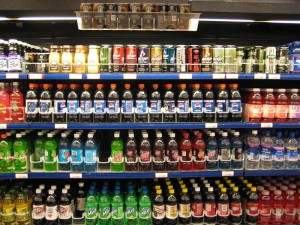Plump in Paradise
Think of them as visitors from the future.
Their mother ship arrives early in the morning, slowly drifting to a halt before extending long ramps to the ground in preparation for deployment.
Then they emerge. Slowly.
No need to feel threatened. These are gentle giants, hailing from faraway lands like Idaho, Mississippi and Arizona.
After several days spent grazing on steamed crab and waffles, they lumber off of their cruise ship. They take a few tentative steps onto terra firma, but many think better of it. A transport vehicle is waiting, ready to haul them around the island while conserving precious calories.
These are nice people, to be sure. They visit for a day, then return to their boat (we’ll call this one the USS Dialysis). They spend, they leave. What’s not to love?
Apart from injecting much needed cash into our economy, the oft-portly passengers sailing Hawaii’s seas are a visual reminder of where our nation’s girth is headed.
Hawaii residents are pretty slender compared to some of the mainlanders that visit our shores, but we’re catching up to them. Over the last 15 years, the rates of obesity and diabetes in Hawaii have doubled. According to the Robert Woods Johnson Foundation and the Trust for America’s Health, over 57% of Hawaii residents are now overweight.
Somewhere between too much junk food and too little footwork, we went off the rails. If we stay on this path, health care costs will skyrocket. Family photos may have to be taken with a wide-angle lens. But most importantly, inter-island air travel will really start to suck.
We can’t drag ourselves from Hilo to Hanalei in a Winnebago. Short of a Super Ferry resurrection, getting between islands a decade from now will still mean cramming into pressurized metal tubes and rubbing elbows (or hips) at more than four hundred miles per hour.
It’s time for an intervention.
Calling food a “drug” though would be alarmist. Sugar and salt are addictive, but no one ever robbed a convenience store for the nachos. Still, soda and snack foods do boost our ability to pack on the pounds, so we’ll give them an official-sounding name.
Thighroids.
Encompassing soft-drinks, packaged snacks and sweets, the consumption of these cellulite-enhancing substances needs to be discouraged.
Libertarians cry afoul when governments dip a policy-minded toe into the food business, mourning even the slightest ripple in the free market. But when you see a 5 year old toting around a half gallon Mega Gulpee or other bladder-busting soda delivery system, you should try to stop it.
Regulating people’s behavior with bans or quotas is constitutionally murky though, and wrong. Many businesses have been built around foods best consumed in moderation, and it’s our own fault for choosing a life of chips and cola over cauliflower and cantaloupe. But as a society, we shouldn’t shy away from collectively nudging ourselves in the right direction.
We’ve been here before. The battle against tobacco use has been a difficult one. But through a combination of taxes and education, the number of smokers in America has been roughly halved since the 1950s.
A similar approach could be used to limit the consumption of Thighroids. Last year Governor Neil Abercrombie suggested raising roughly $50 million dollars via a soda tax. Unfortunately, only 20% of that revenue was allocated toward obesity-prevention measures, and the bill died amid complaints that it was primarily a cash cow.
Senate Health Chairman Josh Green proposed a soda tax again this session, with revenue aimed toward community health. Not surprisingly, beverage companies blew their lids over the suggestion, and Green was unable to garner enough enthusiasm for the bill.
Soda producers complain singling them out is unfair, and they’re right. They aren’t the sole industry fueling our flab. But like tobacco, the ill effects are clear, and well-studied. A soda tax is our best shot at limiting calorie consumption on a wide scale. Small local producers should be exempt, and any tax should be introduced gradually to give businesses a chance to adjust.
And adjust they will. In March of 2011, Coca Cola announced it had acquired Honest Tea, a leading organic bottled tea company famous for the low sugar content of its beverages.
Disrupting the free market is always messy and controversial. Politicians are often inept at deploying the revenue raised. Unfortunately, most of us don’t seem able to control ourselves.
By making soft drinks more expensive, we can start to lower our health costs, narrow our waistlines, and make those future plane rides a little friendlier.








